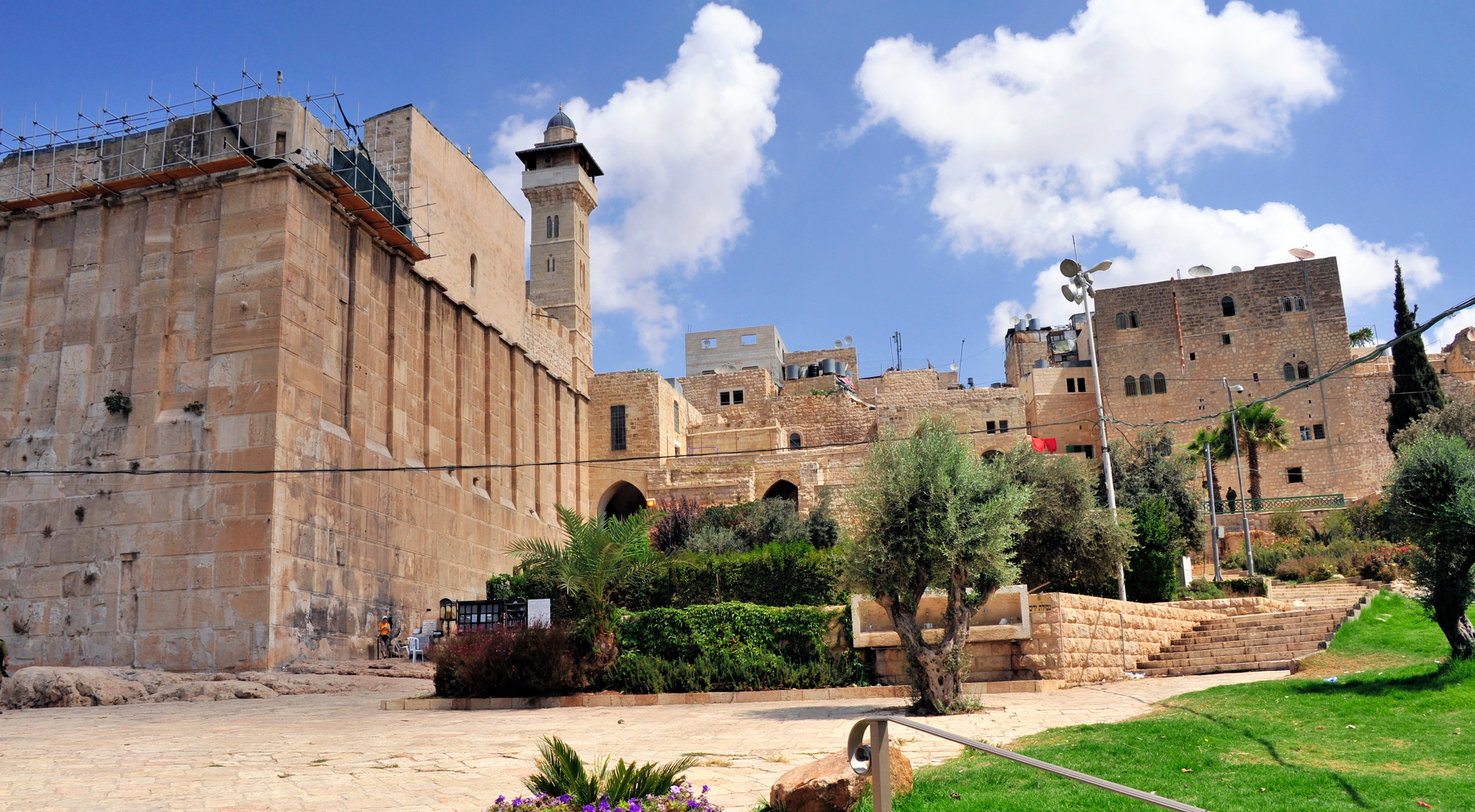
Hebron is located in the southern part of the West Bank, 30 km (19 mi) south of Jerusalem and is one of the oldest continuously inhabited communities in the world. Remains dating back to the ancient, middle, and modern stone ages have been found in Hebron.
Excavations have proven that the history of the city can be traced back to earlier than the year 3500 B.C. Recently, archeologists discovered 40 clay jugs, 4000 years old, at the entrance to nearby Tel Hebron. The Ancient Canaanite name for the city of Hebron is Arbo'a, which is derived from the word "four." It is believed that the city was called so because it is surrounded by four main mountains, or because the area hosted four confederated settlements in biblical times.
An ancient Canaanite royal city, the founding of Hebron has been dated to the 18th century B.C. The Hebrew name, Hebron, means ”friend” and the Arabic name, Al-Khalil into “friend of God”. They both relate to the prophet Abraham, who after immagrating from northern Iraq, settled down in the enclave which became his hometown and it later became his burial place. Among the, historical features of Hebron are the well-preserved ancient city of narrow and winding streets, the flat-roofed stone houses, the bazaars, and the mosque of al-Haram.
The mosque is built on top of a cave that is believed to hold the tombs of the patriarch Abraham and his family. Just outside the village is the mosque of Nabi Yunus which, according to Muslim tradition, is built over the grave of the prophet Jonah. During the time of Jesus Christ, some houses were built around the cemetery wall, which soon became a village known as "House of Abraham". Jesus visited here often, and there is an active Christian community in modern Hebron. The largest city in the West Bank, Hebron is home to around 200,000 Palestinians. The city is most notable for containing the traditional burial site of the biblical Patriarchs and Matriarchs and is therefore considered the second-holiest city in Judaism after Jerusalem. The city is also venerated by Muslims for its association with Abraham and was traditionally viewed as one of the "four holy cities of Islam."
Hebron is a busy hub of West Bank trade, responsible for roughly a third of the area's gross domestic product, largely due to the sale of marble from quarries. It is locally well known for its distinctive cuisine and grapes, figs, limestone, pottery workshops and glassblowing factories. The city is home to Hebron University and the Palestine Polytechnic University.
